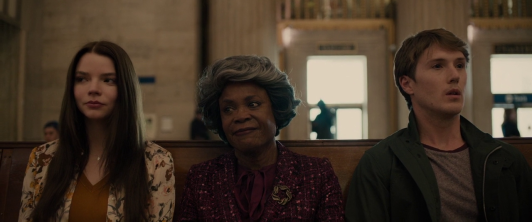2019 was a bit of a weird year for franchises and franchise fandoms. Not that it’s ever been easy to be a part of either of those things, but over the past year there was an odd trend that was surfacing. A lot of things just started to come to an end. Game of Thrones, FOX’s X-Men Cinematic Universe, Star Wars‘ “Skywalker Saga“, and perhaps most famously (even though it wasn’t a true end) – the big myth-arc of the Marvel Cinematic Universe with Avengers: Endgame. That’s not even mentioning the various shows and longer form stories that either got cancelled or decided to have their own full stop. Another weird trend that propped up around this time is that, for the most part, there was that overwhelming sentiment that almost all of these finales were just…falling short. At worst, these finales were seen as being endings that were so offensively bad, insulting, or mind numbing that they actively, and retroactively, ruined all enjoyment and investment in the wider scope of the franchise’s main storylines as a whole.
This got to the point where I have probably seen every which way the idiom “It’s the journey, not the destination” can be discussed, dissected, ruminated upon, and thrown aside that there could possibly could be. At best, well, they had a flash in the pan positive reaction that, more often than not, cooled to a tepid reception of mediocrity. And perhaps maybe a few of them even deserve that sort of reputation. This isn’t going to be about any of those, however, it’s going to be about a finale that I think deserved a bit more of a fairer shake. One that I think not only set the bar, but also far outstripped a lot of the ones that came after it – in simple economics of how it respected the themes, the story, and the central emotional cores of the narrative as a whole. The one that I’m going to be talking about is M. Night Shyamalan’s Glass, the capstone to his long awaited ‘Superhero Trilogy’ (or more commonly known as the Eastrail 177 Trilogy, but that name is ridiculous) and the scope of the trilogy in general.
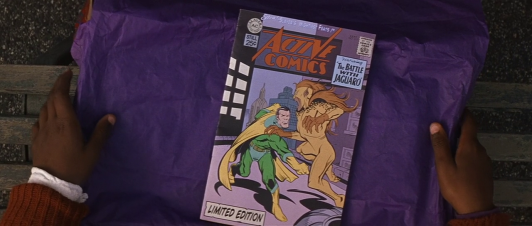
Moviews: M. Night Shyamalan’s ‘Superhero Trilogy’ (2000-2019)
I think the first thing to get out of the way is that there is this popular misconception that this was a trilogy that was meant to happen in the first place. It’s really an idea that was spread due to misquotes, simplified summations of fact, and a long game of telephone played through various articles and sources. The basic root of it all being this anecdote that M. Night floated around about the making of Unbreakable and how in the script phase he realized that the main draw of the story was all in the first act. The origin. How the characters deal and grapple with the inciting knowledge that something is…not quite normal about the main character. And everything else that grew from that. Something that ended up necessitating M. Night cutting out, trimming down, and truncating everything else that was supposed to make up the rest of the movie. So, yeah, in effect Unbreakable is the “first act” of a three-act story that never ended up being made. Yet, the thing is – Unbreakable is, was, and works as, a solitary movie.
Before The Dark Knight, before Ang Lee’s HULK, before even X2, M. Night’s Unbreakable was the movie that really took a step back and reassessed what a superhero movie could be from a dramatic stand point. About how far straight you could play the themes, the tropes, the cliches, and the old standards without breaking the limits of what either a more intimate drama could be, or what a superhero story should be. Something that took itself seriously, without any needed concessions or distractions, but also balanced its earnest enthusiasm for its own genre with actual weight. And, to hear tell of it, it might still be remembered as one of the few films to pull off that mix the best. It’s a movie that almost seamlessly, effortlessly, glides between denser, more complex, character beats – and moments that only truly make sense after some reflection and some awareness of the big, tried and true, superhero idiosyncrasies. Thrown in are a bit of the old ‘George Lucas’-isms, as I like to call them. Odds and ends in dialogue, scene structure, and beats, that come off a bit too awkward. And very clearly just there because they appealed so directly to the director/writer, that they found them either really cool, funny, or neat. But it’s fine – it adds to this genuine feel that the movie has about its subject matter. You need the earnestness.
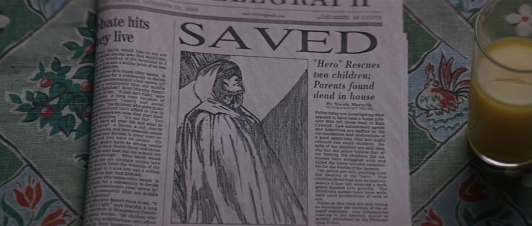
That’s what matters at the end of the day. The tact and the care, in all senses of that word, that M. Night seems to imbue within Unbreakable. It gives the film, the characters, the world, and the story, an internal authenticity. It makes scenes like David and his son trying to find some sort of upper limit to his strength, or David saving his future wife from a car wreck, and even his climactic ‘grapple‘ with the Orange Man, come to gripping life. It’s like the tagline for the original Superman movie, ‘You Will Believe A Man Can Fly‘, because it’s obvious that M. Night truly believes that David Dunn can fly…and he makes every effort to make sure the audience can too – either physically or emotionally. Each feat only as important as the emotional weight given to both it and to the character. It’s a potent combination and is what makes Unbreakable as powerful a movie as it is, even decades after its release. But…it didn’t need a sequel, and it wasn’t necessarily even going to get one. Which brings us to Split.
Split is an odd duck, and it’s honestly shocking that we got something that ended up being as good as it was – because it wasn’t meant to be a sequel to Unbreakable in the first place. Not in the way we know it, in any case. While the basic framework does have its roots in ideas and plot beats that M. Night cut out from Unbreakable, Split – as a film on its own – was meant to be restructured as a done-in-one film for the M. Night produced horror anthology The Night Chronicles, which ended up stalling after only one release – the forgettable Devil. What would have happened after that is unknown, but I have the feeling that would have been the end of it. Unbreakable is a solitary film, and without the ties to that film the finished project ended up having – so is Split. An attribute that ends up being one of its biggest strengths, as well as one of its drawbacks. The strengths coming from how it handles itself – and how it is able to carry its own weight. It’s not a sequel that feels too indebted to any thing that came before, at least not on the outset, and has to actually craft a natural tone to its own story, characters, and setting. It can’t operate under the shadow of Unbreakable, and so it doesn’t.
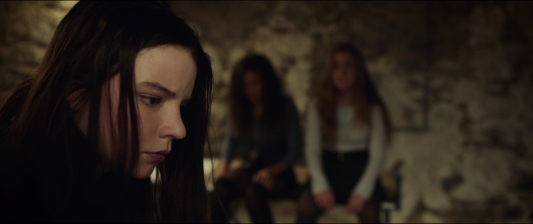
It lets itself breathe and allows for the audience to connect, to be receptive, and to become invested in this situation, in this context, and with the leads. Helps that Split never lets up the guise of being a horror film, from the mood, the shots, and the score – and that there are very distinct expectations for this style of film. I think we’re all a little bit more open to accepting the environment and feel of a horror film than something that is playing itself more as a direct drama. So, Split ends up distinguishing itself and becoming a rare example in modern times of a long spanning sequel that doesn’t feel the need to retread, rehash, or redo in order to “ease audiences back in”. That’s the benefit of the distance. On the other hand, the detriment is that the distance comes along with…the passage of time. It’s clear that with Split, and later Glass, some of M. Night’s focus and ideas had shifted. Not only with where the themes of superheroism and a grounded, interpersonal, reality might lay – but also in how everyday people fit into that structure. With Unbreakable, all of this seems to mesh finely together as part of the ‘fantastical’, there’s something almost magical about it that never needs to be explored.
Starting with Split, it definitely feels the need to try and make justifications for itself. It just doesn’t feel as confident, and while with Glass I feel M. Night worked most of the kinks out, in this one it makes for some of the least engaging moments and sequences. If it had been completely entrenched in Unbreakable, either as the original second act or in terms of time and had released soon after the previous film, then that would have been bypassed completely. Without it, it has to make some concessions that the other didn’t. It just juts when it should complement, and zigs where Unbreakable zags. Yet, the moments where they do coalesce – even when you didn’t expect – even where you wouldn’t expect – is what makes its mark. The separation means that M. Night has to be a little more careful, a little more thematic, and (to borrow another Lucas-ism) ‘poetic’, in how it bridges the gap to Unbreakable. And even on rewatches there are a few echoes, asides, and interlocking themes that pop out as so impressive. As well as a few blunt ones that you wouldn’t catch unless you knew – I still get a kick out of the immediately obvious connection to Mr. Glass’ Active Comics limited edition – and how it lays bare why Kevin is the way he is….he’s Jaguaro. Not only does that scene make it clear that M. Night has been thinking of this for a while, but it’s due to that scene – that comic – that the trilogy does hold together better than any of the aforementioned finales. Because everything ties back into it. It’s the Rosetta Stone of the series. No matter how far astray it goes, you can still find its way back to that sequence. Both the movies and the leads themselves – David/Unbreakable contending with Kevin/Split and how they are framed and contextualized by Mr. Glass/Glass.
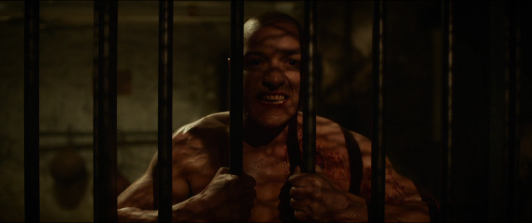
Glass is a movie that didn’t need to be made. You have two movies that work extremely well as standalone features. Sure, there’s a definite narrative and thematic connection between them, plus the end-title stinger of Split sets one up – but it didn’t exactly call for it. And you can see a lot of this sentiment from reviews that disliked the film – calling it “pointless” or “needless” or “unnecessary” – and I’m not really going to disagree with that. I might disagree wholeheartedly with their reasoning, but it’s not something that really needed to happen from a simple film standpoint. But from a storytelling standpoint? Then, yeah, no, Glass is the ending that this trilogy needed, that it deserved, and that it earned tooth and nail to have. There is just one problem – it just doesn’t work as a movie. Unbreakable and Split were both movies that could be enjoyed on their own, with their respective genres and internal logic, but Glass – it doesn’t have that luxury. It is completely at the mercy of those two films, and is nothing without them. Everything within Glass is either a culmination, an extrapolation, or a reflection on the previous two entries in the trilogy and due to that it can’t be enjoyed on its own. There is no other, internal, storyline or context to Glass. No new, depthy, themes, characters, or threads. It exists only as a crossover, as one last mediation on the themes, as a finale. And it’s a damn good one.
It makes clearer the areas of separation between Split and Unbreakable, especially with regards to how it approaches the nature of superheroes, powers, and empowerment. While the first film never lingered, never cared, and never drew any attention to it – Split spends quite a bit on it – enough to feel awkward and weird in its brief flirtation with borderline psuedo-science. Glass, however, is able to cement something firmer down. Not simply that it’s just, in the case of Kevin/The Beast, some sort of side-effect of Dissociative Identity Disorder, but that there’s an element of belief to it. To being able to become…more. That it’s an internal drive and want. For the Beast, it’s the compulsion to protect Kevin, and Mr. Glass in Unbreakable calls it David’s subconscious need to help others – and it’s that altruism, that compulsion, and belief that the two movies were all about that is under the microscope in Glass. If the last movie is about anything, it’s about testing the limits of these drives and taking them to the breaking point.
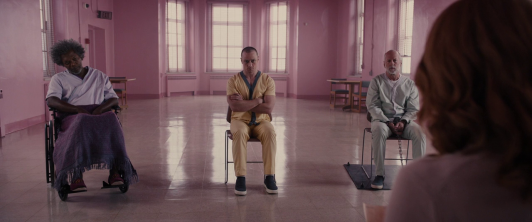
Which is not a bad thing to center this movie around. It speaks more to Kevin and David, and their supporting casts, as actual characters and helps to highlight not only their differences – and the ways the movie tackles both of their emotional states – but also underlines their weirdly similar shared vulnerabilities. It creates a vibrant and engagingly sentimental foundation for the movie to really work around with. With it not only can you grow David, his son, and Mr. Glass as characters in a way that feels natural and respectful of the time that has passed – but it helps to break Kevin out of the “horror tangent” his character is otherwise in. Bringing him more in line with the intimate, poignant, mood of Unbreakable. In effect, it takes two movies – with radically different takes on the superhero story – and entangles them in an inspired way. Jus by breaking it down to brass tacks and showing why and how they connect. Not just lumping the characters together, having them go at it, and calling it a day. And I feel the need to really emphasize that point. That the movie went for something slower, something more methodical, and something more methodical, as a way to coalesce these movies into a coherent and thematically stirring whole. Because it seems that some people really just wanted the opposite. When I mention critics calling this movie “pointless” and “useless”, it really has to do with the last 20 minutes, and the climax of the movie. But before I get to that – I need to mention one last thing.
The thing with the whole idea of powers going from something innate to belief is something that I think M. Night only came up with in the intervening years, and I don’t think that if these three movies were the original single one it was planned to be – that it would have climaxed the way it does in Glass. It just wouldn’t make sense from a story perspective, as it would either have no weight and fall flat, or it would just come off as just cheap and lazy – which is what some have seen it as. But it’s belief that’s the key difference here. Without belief the whole weight behind superheroes in a “real world” just stays something innate, stagnant and solitary to the individual – but basing it on belief brings it out and opens it up to the world, to every individual. We can’t all be born with the best advantages or circumstances, but we can all believe in something better, in something more. In ourselves and for ourselves. We can all be superheroes…if we have faith and belief that we can be better. It’s even the tagline of the movie: ‘Real Villains Are Among Us. Real Heroes Are Within Us.” M. Night wants to hammer home this uplifting sentiment – and it’s why everything else in the climax happens the way it does. Because it goes some depressing places and I’m not going to sugar coat it – they all die. Especially David, who is pathetically drowned in a puddle.
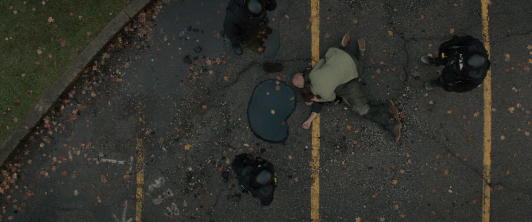
And this is the main sticking point for a lot of the backlash. That this turn of events invalidates the previous movies, that it makes their journeys worthless, and that it was disrespectful to the characters – when I can’t think of anything more fitting for what the story was trying to say and the moral it was trying to impart. There’s a line in Unbreakable where David, still fighting against his heroic destiny, references a time when he was a child and was almost drowned in a pool, saying “Heroes don’t die like that. Normal people do.” And, like, that’s the point. To show the audience that, despite it all, in spite of it all, David was still a normal person. Not in a way that’s supposed to degrade him and bring him down to our level, but to show to use that he could still be a normal and be as heroic and as selfless as he has been for so long. That we, normal people, aren’t so different – and that his example is something that we can follow – because he was vulnerable – and everyone always is. Is a puddle the perfect way to get this across? No, not really – but the pathetic and depressing nature of it is traumatic, is shaking, but is also stirring. We want justice, we want his efforts to not go forgotten, we want him to have a legacy beyond…just dying – and the movie gives us this. That’s what the last few minutes are all about – and it plays it perfectly.
One of the pillars of Glass is Spencer Treat Clark as David’s son, and the movie spends ample time really hammering home how strong their bond has grown since the first film. That they’ve gone from a pair that was a bit frayed and a maybe on the road to future estrangement, to a father and son that truly care about and love each other. Who understand each other. If the aforementioned purpose of this movie, the testing of belief, hits any of the characters hard – it hits them the hardest. Because who doesn’t want to see their dad as a superhero? Someone who can do anything? And the acting and direction of these scenes is immaculate. You feel the damage and wounding being done there – which reaches the apex with David’s death – but it’s enough to reach a moment of pure catharsis when everything swings back. When he’s able to make a monument to his father that he’s always wanted do, so people know about him, and can be inspired by him – with M. Night perfectly placing a flashback to Unbreakable during all this – and finding solace in that. It’s powerful. Like, it’s more powerful than any superhero movie has any right to be with the way the majority of them are nowadays. Some of the circumstances strain, and seem a little jarring, but it all comes from a genuine emotional core. Transitioning from the main trio’s insecurities and vulnerabilities to David’s son’s (and Glass’ mother and Casey from Split to a lesser extent) and how they rebuild is so ingeniously done. I can’t help but commend it, and how it lands the narrative in a way that feels so good, so enrapturing, and so right.
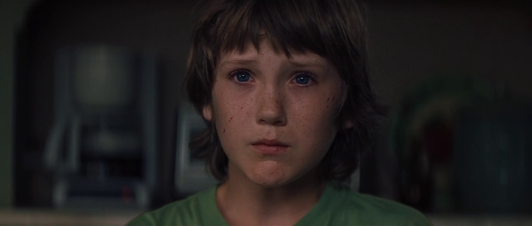
But apparently it’s pointless because they died. Or it’s useless because there wasn’t a big fight on a skyscraper. Or it just wasn’t epic enough. And I really can’t imagine being able to see these three movies, as a whole, and thinking that it was done wrong by any of that. Especially the skyscraper bit, which was more of a reference to generic comic movie plotting and not at all in line with the tone and themes of the series at all. Like, the Michael Bay produced Teenage Mutant Ninja Turtles movie had the exact climax that they seem to want. Not that I disliked that one, but it’s…not on the level of these three. Something like that, something a lot more bombastic, or blockbustery, or punch-em-up style, would have been along the same lines of insulting as any of the other badly botched finales that people have been rallying against all year. Glass is many things, but in a sea of dull to awful endings – it’s one that held its head up high and made its way across the finish line with dignity. It knew what it wanted to tell and it knew how to tether it to everything that came before. Do all of the pieces fit smoothly? Not all of them, no. Like Split, Glass feels like it makes some concessions that go beyond the right balance, but they fit enough that, also like Split, the core rises to the top. Especially on rewatch, as things just echo, and beautifully so.
So, yeah, I do hope this trilogy ends up getting the recognition it deserves some day. Whether or not it’ll be someday soon, I can’t tell. The amount of folks that wanted some generic action finale was really high, and there were even reviews that basically called the movie smug, egotistical, and self-satisfied. All things I cannot wrap my head around one bit. To me, it’ll always be one of the more intimate, passionate, personal, and genuine superhero stories to have made it to the big screen. It went farther than few of what superhero films I feel were on its level were willing to go, and, at times, a lot more successful at it too. Maybe in the future it’ll get a fancy new Shout! Factory box set of some sort, and then we’ll know it’s finally made it to a cult audience that can really appreciate it. It’ll be in my rotation for years to come until then.
